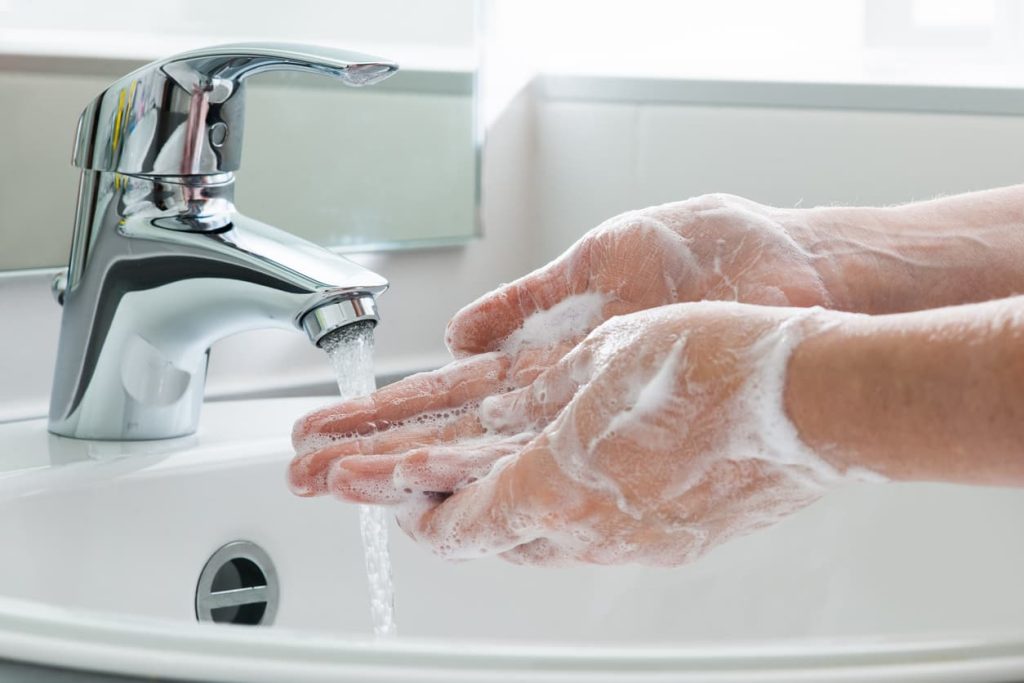Washing your hands is one of the most effective ways to stop germs from spreading person-to-person and can help you avoid getting sick. Even though we were told at an early age to always wash our hands, some people never learn the proper way of doing so. As the COVID-19 pandemic continues, washing your hands remains one of the most important and effective ways to avoid possible infection. Richmond University Medical Center would like to provide tips on the correct way of washing your hands, along with when you should do it.
The Right Steps to Take
Washing your hands is easy, and when done properly, does not take much time. To properly rid your hands of dirt and germs, simply follow these steps:
- Wet: The first step is to get your hands wet with warm or cold water.
- Lather: Next, lather your hands by rubbing them together with the soap. Remember to lather the back of your hands, in between your fingers, and under your fingernails.
- Scrub: Once your hands are thoroughly lathered in soap, scrub for 20 seconds, targeting any stubborn dirt that might be present.
- Rinse: After you’re done scrubbing, rinse your hands under running water, washing away all the soap.
- Dry: Finally, dry your hands with a clean towel, or allow them to air dry.
Following these steps can effectively protect you from common illnesses and help stop the spread of viruses like COVID-19, influenza, and more.
When Should You Wash Your Hands?
Washing your hands is a hygiene habit you should practice daily. A good rule to follow is to wash your hands after you have been in a public place, gone to the restroom, or touched a surface that has been in contact with multiple people. Common surfaces that often see a lot of hand traffic include:
- Railings
- Door handles
- Light switches
- Gas pumps
- Touch screens
- Shopping carts or baskets
Also, washing your hands before, during, and after prepping or cooking food helps to reduce the risk of contamination, especially when handling raw meat or fish. If you find yourself tending to an ill person or performing first aid, you should wash your hands as soon as possible to protect yourself.
No Sink? No Problem
In the event soap and water are not available, alcohol-based hand sanitizers are an acceptable alternative solution. Because they do not require water, hand sanitizers are great to have on hand when you need to clean your hands quickly. When choosing a hand sanitizer, make sure it contains at least 60% alcohol. To apply, squeeze a few drops of the sanitizer into your hands and gently rub them together, ensuring to hit all areas.
Helping Stop the Spread of Germs
One of the most effective ways to stop the spread of germs and viruses is by routinely washing your hands. Richmond University Medical Center serves patients living in Staten Island, New York, and hopes to help lower the number of residents who get sick during common cold and flu season. In the event you contract an illness or need medical care, please contact us today.




